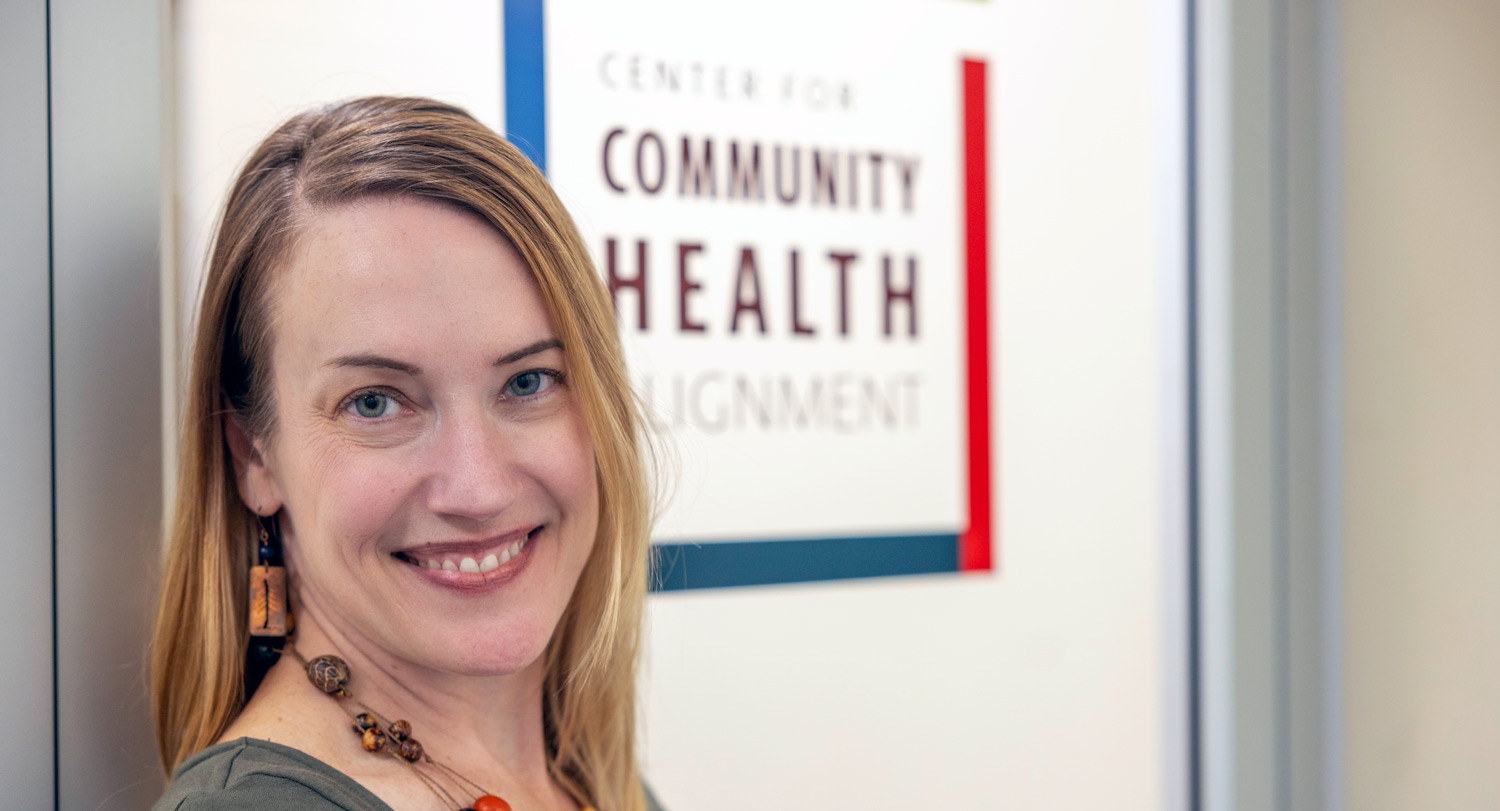
Fifteen years ago, Julie Smithwick was a community health worker focused solely on new Latino mothers and families in South Carolina.
Today, she directs a new center in the Arnold School of Public Health that’s training hundreds of community health workers who assist vulnerable populations with health and social needs ranging from children with disabilities to adults with chronic diseases and more.
Smithwick’s successful track record has earned trust from government agencies, including the S.C. Department of Health and Human Services, which recently awarded the Center for Community Heath Alignment $3.6 million to train and equip community health workers and organizations around the state to help people without insurance address health and social challenges.
“Our priority populations are communities that experience the highest health inequities in South Carolina and beyond,” Smithwick says. “There is a lot of evidence that the community health worker model is effective — that trusted members of a community are sometimes the most effective people to connect their peers and neighbors to food or housing or mental health and medical resources.”
Smithwick’s journey began more than 20 years ago when she trained for several years as a community health worker in Ecuador, becoming fluent in the Spanish language and Latino culture of that country. When she returned to South Carolina to earn a master’s in social work degree from USC, the state had one of the nation’s fastest-growing Latino populations.
“During the second year of my field placement as an MSW student, I did research and presented a plan to start an initiative focused on Latina mothers with young children,” said Smithwick, who launched the Latino Perinatal Outreach Program — later renamed PASOs — in 2005 and led it until 2019.
"We’ve got a presence and a footprint all over the state, and we're really trying to help build the capacity of the community health worker workforce that can address some of our state's most pressing needs."
Now, through the university’s Center for Community Health Alignment which she directs, Smithwick is overseeing a pilot program called Community Health Workers Changing Outcomes in South Carolina. The program, funded with a $1.9 million contract from SCDHHS, works with 14 community-based organizations and federally qualified health centers throughout the state, helping to prepare their community health workers, provide technical assistance as they develop and help show community health workers’ impact on the state’s health.
Among those organizations are Care South, a federally qualified health center in the state’s Pee Dee region; the Bee Collective, a community-based doula program in the Lowcountry; and Family Connection, a statewide community-focused organization that supports parents of children with disabilities.
“We’ve got a presence and a footprint all over the state, and we're really trying to help build the capacity of the community health worker workforce that can address some of our state's most pressing needs,” she said.
“This pilot program is really to help show our state and taxpayers that community health workers make an impact. During COVID-19, our country invested more resources in community health worker programs than ever before because we needed a way to reach and support our most marginalized communities,” Smithwick says.
“The investment was successful, so we want to make sure that this workforce in our state grows to meet the needs and is sustainable in the future. We still have lots of folks who don't have Medicaid or access to any type of insurance, and they also need access to health care and that have other social needs, and they need support from trusted peers so they have a more equitable opportunity to be healthy.”
Smithwick is also helping to grow a new initiative called Equity through Meaningful Community Engagement, aimed at fostering ideas for change that bubble up within communities.
“We want to help community health workers and other leaders within communities to bring forward ideas for change, which can be the most powerful and most sustainable as opposed to somebody coming from the outside who says, ‘You need to do this.’
“We’re working on processes, tools and training to help folks understand how to partner with community health workers and other leaders to really drive change from the ground up so we can see more meaningful improvements, which the communities themselves own and want.”